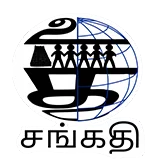
Justice Rohini Marasinghe, in her capacity as Chairperson of the Human Rights Commission, has told the fourth Universal Periodic Review (UPR) of Sri Lanka in Geneva recently how short-sighted policies of the previous government plunged the country into unprecedented political-economic-social turmoil and the circumstances leading to the then President Gotabaya Rajapaksa’s ouster.
Justice Marasinghe has dealt with social and economic rights and establishment of a national preventive mechanism.
Declaring that it was the worst economic crisis after gaining independence from the British in 1948, Justice Marasinghe has said that the shortsighted ban on chemical fertilisers ruined the agricultural industry in 2021.
The HRCSL Chairperson has explained how the loss of government revenue due to unwarranted tax concessions granted in the wake of 2019 presidential election, the acute fuel and gas shortage and the disruption of medicine supplies caused by forex crisis led to the public losing faith in the government.
Justice Marasinghe has discussed how closure of schools, mandatory power cuts and high inflation affected the masses in early this year and eruption of violence in the second week of May. Recalling protesters setting fire to house of parliamentarians and officials, Justice Marasinghe said: “Hundreds roamed the streets against the government and its economic policies. They all rallied against the leaders who had steered the country into the worst economic crisis. They were not terrorists nor insurgents, as described by the military. They only demanded what was legitimately entitled from the Government. They expressed anger over the Government’s handling of the economy. They demanded the President’s resignation, forcing him to resign on 14th July 2022.”
Justice Marasinghe has also briefed Geneva of the incumbent government’s declaration that it wouldn’t tolerate protests of any form as the country needed stability.
She has said that the government was making every effort to bring much-needed stability to the country by introducing economic reforms. Asserting that the fuel shortage has been brought under control, Justice Marasinghe said that the situation improved with the restoration of gas supply, reopening of schools, reduced power cuts and the drop in inflation. The HRCSL chief has asserted that the government has introduced what she called well discussed tax proposals to increase revenue collection.
The HRCSL head also briefed Geneva of recommendations it has made to the government following investigations conducted into the economic crisis and the subsequent protests.
She has stressed the need to amend the Human Rights Commission Act to address the contentious issue of non-implementation if its recommendations.
Responding to recommendations from Slovenia, South Africa, France, Thailand, Belgium, and Mexico, Justice Marasinghe has said that the establishment of the Office of Missing Persons (OMP), the National Unity and Reconciliation (ONUR), and the office of Reparation (OR) were meant to address the issue of accountability during the period of the ‘civil war.’
The top HR official said that the government was planning to constitute a Truth and Reconciliation Commission (TRC). According to her, the government has sought advice to have a mechanism similar to that of South Africa. The formulation of the TRC by the Government should be subjected to what Justice Marasinghe called a meaningful dialogue with the victims’ families. She has declared that such a dialogue was essential.
As regards recommendations made by France and Haiti in respect of land held by the military in former war zones, Justice Marasinghe has informed Geneva of the releasing of land over the years. According to her only 275 acres cf State land and 3,000 acres of private land yet to be released. She based this assertion on information received from the North.
As regards establishment of the National Preventive Mechanism proposed by Portugal, Poland, Denmark, Senegal, New Zealand,, Ghana, the UK., Afghanistan, and Cote d’Ivoire against arbitrary arrests and torture or other cruel, inhumane or degrading treatment, Justice Marasinghe has said that National Preventive Mechanism (NPM) was established in the Human Rights Commission and made functional this year.
The unit made 543 visits to police stations, 34 to prisons, and 20 to detention centres. At the beginning, there had been 46 detainees, and now only two remained in the detention centres. (1 LTTE and 1 Easter Sunday attack suspect) . The HRCSL chief explained that the objective of the NPM was to make unscheduled visits to police stations and detention centres. According to her the following recommendations had been made to the government. Repeal the Prevention of Terrorism Act (PTA), amend the General Laws of the Country to deal with the offences of terrorism and amend the definition of terrorist, establish a Truth and Reconciliation Commission and amend the Human Rights Commission Act to ensure the implementation of the recommendations.

